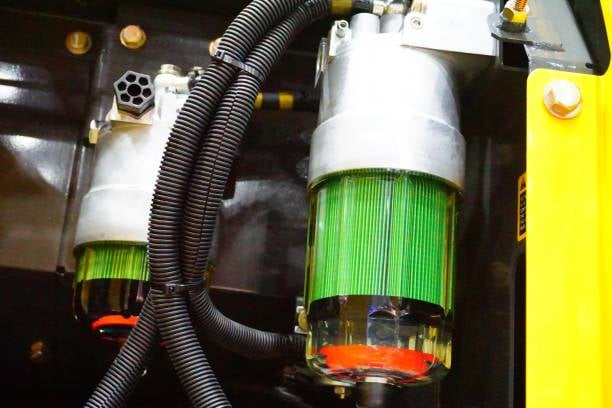The Importance of Air Filters
Air filters are essential components in any HVAC system, be it in residential or commercial buildings. Their primary function is to remove airborne particles such as dust, pollen, and mold spores that can adversely affect indoor air quality. One type of air filter you may have heard of is the
dry air filter. In this article, we'll explore everything you need to know about dry air filters.
Understanding Dry Air Filters
A dry air filter is a type of mechanical air filter that traps particles as they pass through the filter media. Unlike wet air filters that use oil to trap dirt particles, dry air filters rely on their filter media to capture contaminants. They are commonly made of paper, cotton, synthetic fibers, or a combination of these materials.
Benefits of Using Dry Air Filters
There are several benefits to using dry air filters, including:
Improved Airflow
Dry air filters offer unrestricted airflow, which can help improve the performance of your HVAC system.
Low Maintenance
Since dry air filters don't use oil, they require little maintenance. You only need to replace them periodically according to the manufacturer's recommendations.
Better Filtration
Dry air filters can efficiently trap particles as small as 5 microns, which means they can effectively remove most airborne particles that can cause respiratory problems.
Types of Dry Air Filters
There are several types of dry air filters available in the market. The most common include:
Paper Air Filters
Paper air filters are the least expensive and the most common type of dry air filters. They are made of layered paper or cellulose fibers and can effectively trap most airborne particles.
Cotton Gauze Air Filters
Cotton gauze air filters are more expensive than paper air filters but are more efficient in trapping smaller particles. They are also washable, making them more environmentally friendly.
Synthetic Fiber Air Filters
Synthetic fiber air filters are made of non-woven materials and are often used in high-performance engines. They offer superior filtration and require less frequent replacement than paper air filters.
When to Replace Dry Air Filters
It's crucial to replace your dry air filters regularly to prevent clogging, poor airflow, and reduced system performance. The frequency of filter replacement depends on several factors such as:
Usage
Filters in high-traffic areas like commercial buildings will require more frequent replacement than those in low-traffic areas like residential homes.
Environmental Conditions
Areas with high pollution levels and dust particles will require more frequent filter replacement than areas with cleaner air.
The Bottom Line
A dry air filter is an important component in your HVAC system that can help improve indoor air quality and increase system performance. Understanding the different types of dry air filters and when to replace them can help you make informed decisions about your HVAC system's maintenance.
dry air filter, HVAC system, airborne particles, filter media, improved airflow, low maintenance, better filtration, paper air filters, cotton gauze air filters, synthetic fiber air filters, filter replacement
Everything You Need to Know About Dry Air Filters - A Complete Guide
Learn everything about dry air filters; their types, benefits, and when to replace them. Improve indoor air quality and increase your HVAC system performance!
how to choose a dry air filter, dry air filter maintenance, dry air filter replacement, benefits of using dry air filters, types of dry air filters, paper air filters vs. synthetic fiber air filters
Quote Inquiry
Contact us!

